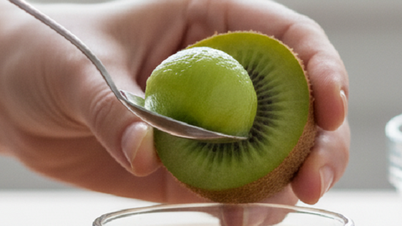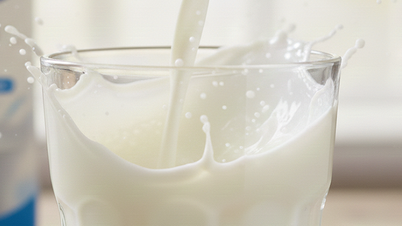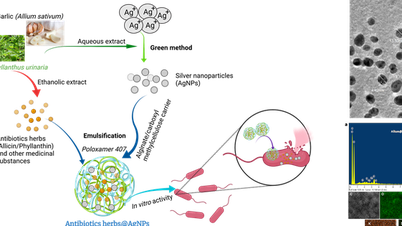 |
| American doctor Patricia Varacallo highly appreciates the health benefits of pineapple. (Illustration photo created by AI) |
Patricia Varacallo is an American physician with experience in primary care. She is also a certified lifestyle coach and has presented her research at national conferences.
She regularly conducts food trials to give nutritional advice to people.
Pineapple is a popular, delicious and easy to prepare tropical fruit, loved not only for its sweet taste but also for its significant health benefits.
During a week-long pineapple-every-day challenge, I not only felt positive changes in my body, but also understood more about the nutritional value and effects of this fruit with the advice of nutritionist Julia Zumpano.
Nutritional composition of pineapple
Pineapple contains many essential vitamins and minerals, especially:
- Vitamin C: 100g of pineapple contains about 47-79mg of vitamin C, which supports the immune system, helps keep skin healthy and is an antioxidant.
- Fiber: Pineapple provides soluble and insoluble fiber, regulates digestion, and reduces cholesterol.
- Manganese: An important mineral for bones, enzyme and metabolic function.
- Bromelain: A unique enzyme in pineapple that breaks down protein, aids digestion, and reduces inflammation.
Additionally, pineapple is high in water, low in calories, and contains small amounts of vitamin A, B6, folate, potassium, and magnesium.
Benefits of eating pineapple every day
- Improved digestion: The most obvious effect I noticed after a few days was a feeling of lightness in my stomach, regular bowel movements, and less bloating.
This is thanks to the fiber that aids in bowel movements, reducing constipation; bromelain breaks down protein in the stomach, helping to reduce bloating and indigestion. In addition, pineapple also has the ability to balance intestinal microflora.
- Supports weight loss: Eating pineapple increases the feeling of fullness, controls appetite thanks to its low calorie content (about 50 calories/100g); lots of water and fiber; complex carbohydrates, maintains stable energy.
- Reduce inflammation and speed up recovery: I tried eating pineapple after my workouts and found that my body was less sore and stiff the next day.
Bromelain in pineapple can reduce soft tissue inflammation, relieve muscle pain, and support the natural healing process. Although clinical evidence is still being studied, anecdotal evidence suggests that pineapple has a positive effect on recovery after exercise.
- Healthier and more hydrated skin: Although I wasn't expecting this, I noticed my skin looked brighter and more hydrated by the end of the week.
The cause may come from vitamin C which helps produce collagen and is an antioxidant; bromelain's anti-inflammatory properties, improving swelling under the skin; high water content, hydrating the body from within.
Some people also use pineapple as a natural mask, but this method is not suitable for sensitive skin because the enzymes can cause irritation.
Side effects: Burning sensation in mouth
After a few days, I noticed a slight tingling sensation on the tip of my tongue after eating fresh pineapple – especially if I ate a lot or when I was hungry. This is because the bromelain starts breaking down proteins in my mouth, causing a slight irritation.
Ways to reduce this sensation include eating well-ripened pineapple, soaking pineapple in salt water before eating, cooking pineapple, and eating it with fatty foods like yogurt or smoothies. This condition is not harmful for most people, but people with allergies or sensitivities to pineapple should be cautious.
Should I eat pineapple every day?
After 7 days of experience, I appreciate the benefits of pineapple. However, I will not eat it every day, instead 3-4 times/week, combined with many other fruits to ensure nutritional diversity.
Source: https://baoquocte.vn/loi-ich-suc-khoe-khi-an-dua-nhung-khong-nen-dung-moi-ngay-trong-mot-tuan-322248.html



![[Photo] National Assembly Chairman Tran Thanh Man receives a business delegation from the Europe-ASEAN Business Council](/_next/image?url=https%3A%2F%2Fvphoto.vietnam.vn%2Fthumb%2F1200x675%2Fvietnam%2Fresource%2FIMAGE%2F2025%2F11%2F24%2F1763989198212_ndo_br_bnd-7394-jpg.webp&w=3840&q=75)

![[Photo] Prime Minister Pham Minh Chinh attends the patriotic emulation congress of the banking sector](/_next/image?url=https%3A%2F%2Fvphoto.vietnam.vn%2Fthumb%2F1200x675%2Fvietnam%2Fresource%2FIMAGE%2F2025%2F11%2F24%2F1763981997729_tt-nhnn-jpg.webp&w=3840&q=75)
































![[Photo] Next to the "mountain of trash" after the flood, Tuy Hoa residents strive to rebuild their lives](/_next/image?url=https%3A%2F%2Fvphoto.vietnam.vn%2Fthumb%2F1200x675%2Fvietnam%2Fresource%2FIMAGE%2F2025%2F11%2F24%2F1763951389752_image-1-jpg.webp&w=3840&q=75)







































































Comment (0)